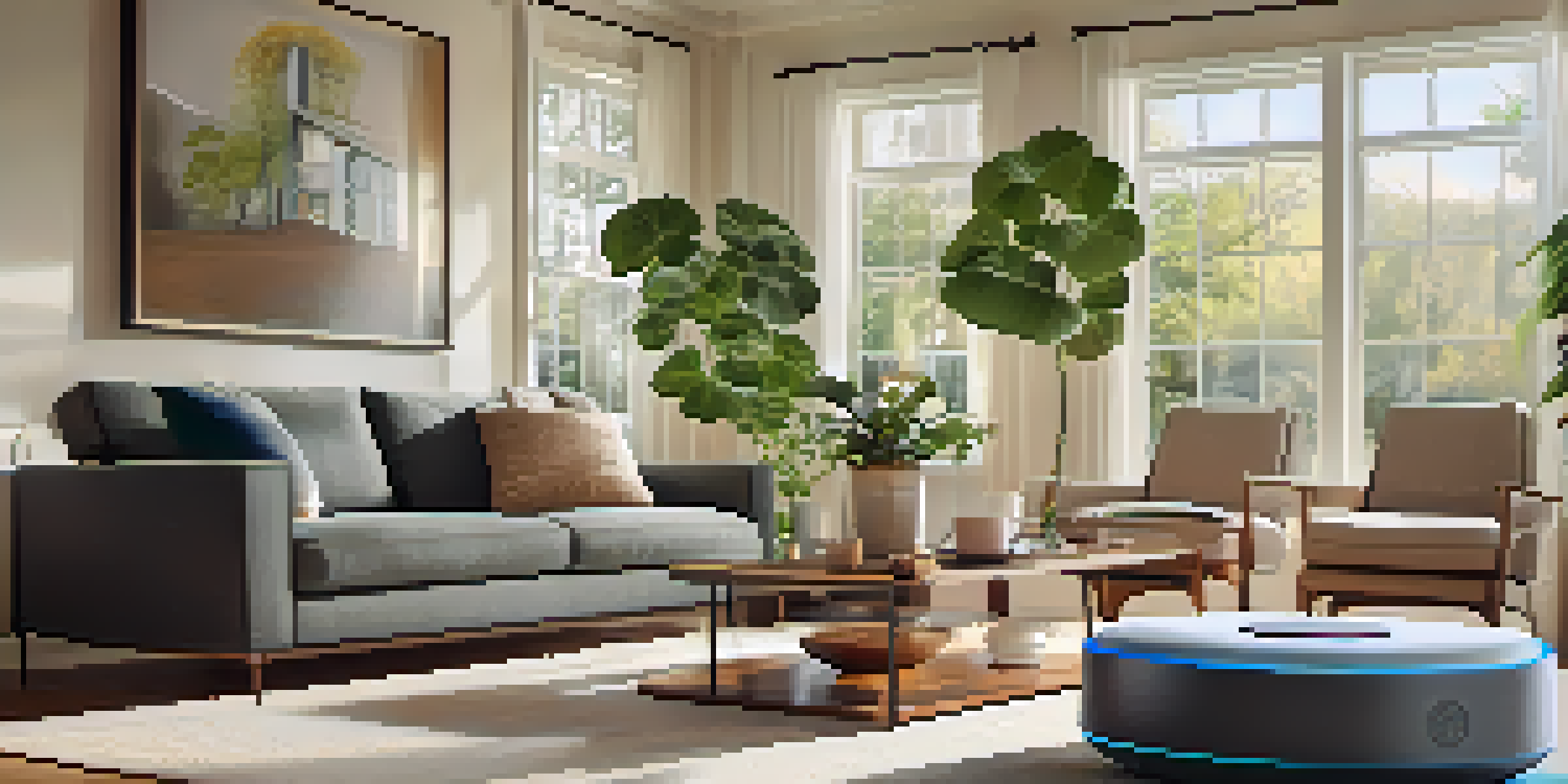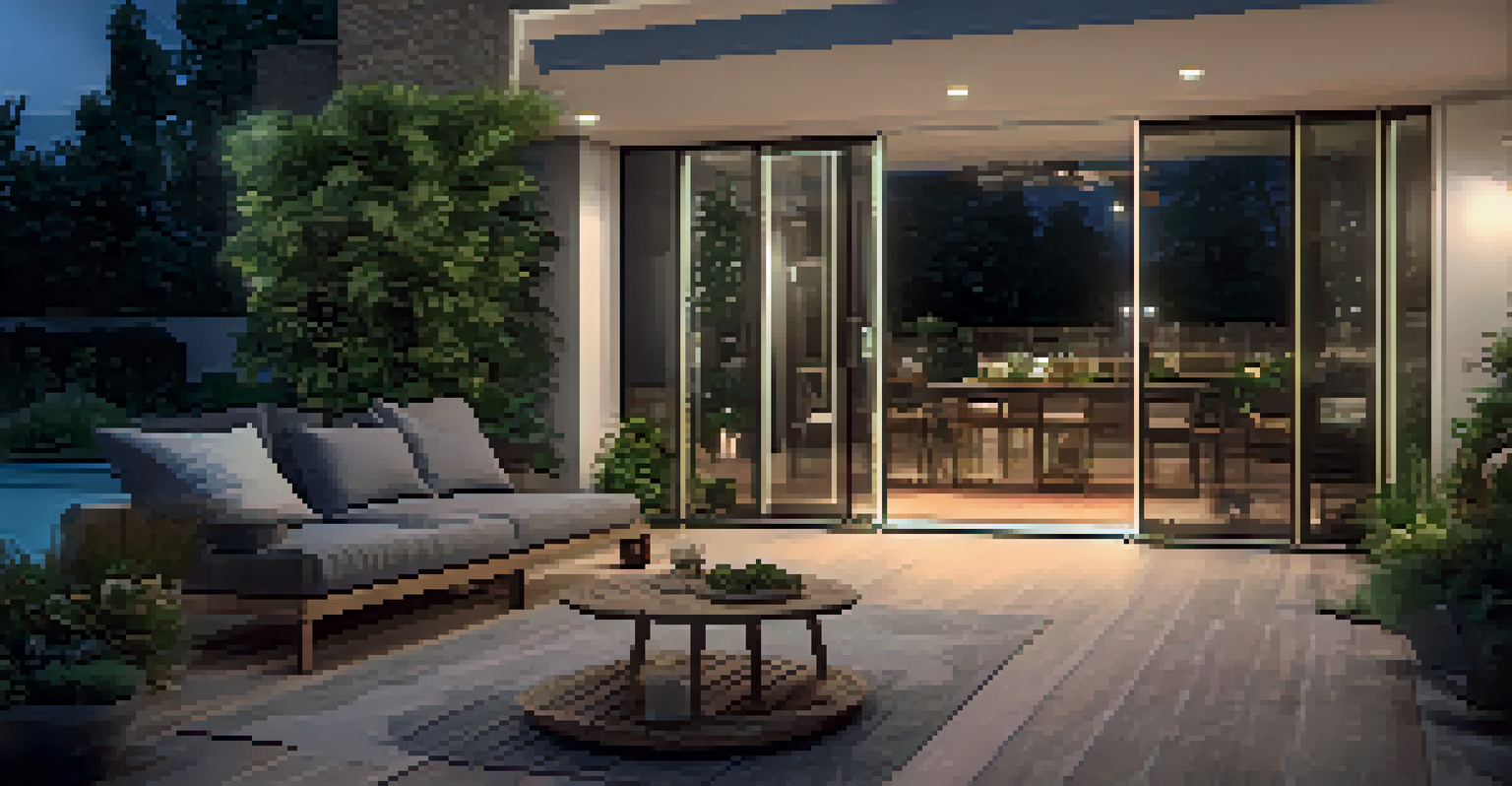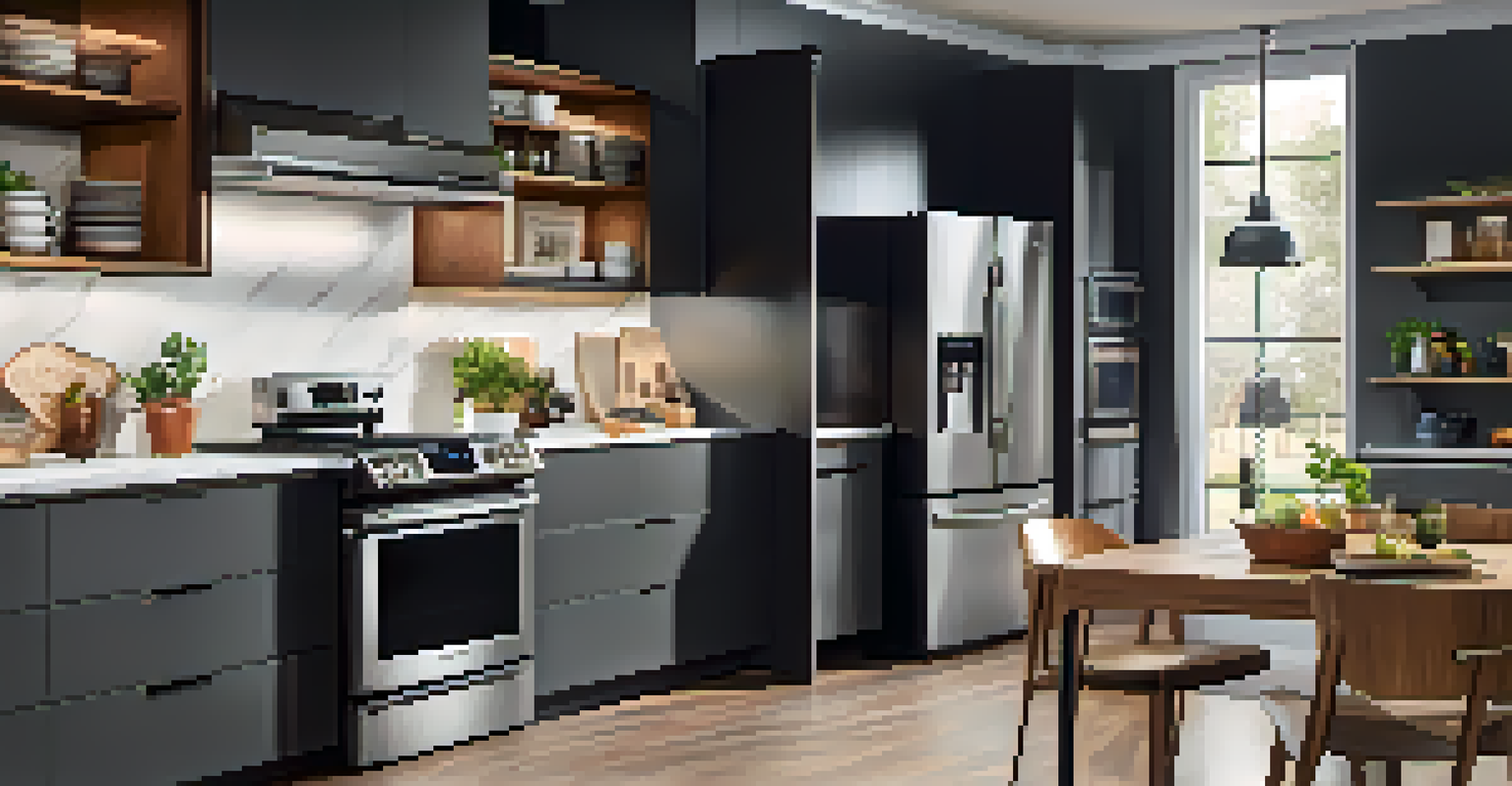Home Automation: The Future of Smart Living

What is Home Automation and Why Does It Matter?
Home automation refers to the technology that allows you to control household appliances and systems through the internet or smart devices. Imagine being able to adjust your thermostat or turn off lights from your phone, no matter where you are. This convenience not only enhances the comfort of your home but also promotes energy efficiency and security.
Home automation is no longer a futuristic dream; it's a present-day reality that enhances our quality of life.
As more devices become connected, the concept of a 'smart home' is becoming a reality for many. Home automation systems can include everything from smart lighting and security cameras to voice-activated assistants. These technologies work together to create a seamless living experience, making your home more responsive to your needs.
In essence, home automation is about making life easier and more efficient. As we dive deeper into this topic, you'll see how it impacts various aspects of daily life, paving the way for a more connected future.
Benefits of Home Automation: Convenience and Efficiency
One of the most appealing aspects of home automation is the unparalleled convenience it offers. With the ability to control various devices from one central hub, you can simplify your daily routines. For instance, imagine arriving home and having your lights turn on and your favorite music start playing automatically.

Moreover, home automation can significantly enhance energy efficiency. Smart thermostats learn your habits and adjust temperatures accordingly, helping you save on energy bills while keeping your home comfortable. This not only benefits your wallet but also contributes to a greener planet.
Home Automation Enhances Convenience
Home automation simplifies daily routines by allowing control of various devices from one central hub.
Security is another critical benefit of home automation. With smart cameras and doorbells, you can monitor your home in real-time, receive alerts about unusual activities, and even interact with visitors remotely. This peace of mind is invaluable for homeowners looking to protect their property and loved ones.
Essential Technologies Driving Home Automation
Home automation relies on several core technologies that make smart living possible. First and foremost, the Internet of Things (IoT) connects devices to the internet, allowing them to communicate and function together. This interconnectedness is what transforms ordinary appliances into smart devices.
The best part of home automation is the ability to customize your living environment to fit your unique lifestyle.
Another essential technology is artificial intelligence (AI), which enables smart devices to learn from your behavior and preferences. For example, AI can help a smart thermostat adjust the temperature based on your daily schedule, providing optimal comfort without you having to lift a finger.
Lastly, voice recognition technology has become a game-changer in home automation. With devices like Amazon Alexa and Google Assistant, you can control your home using simple verbal commands. This hands-free convenience is especially useful when your hands are full or when you’re on the go.
Popular Smart Devices for Your Home
When it comes to home automation, there are countless devices to choose from. Smart speakers like Amazon Echo and Google Nest serve as the control center for your smart home, allowing you to manage other devices effortlessly. They can play music, provide weather updates, and even control your lights—all with just your voice.
Smart lighting systems, such as Philips Hue, are another popular choice. These allow you to customize the brightness and color of your lights, set schedules, and even create mood lighting for special occasions. Imagine dimming the lights for movie night without leaving your cozy spot on the couch!
Smart Devices Improve Energy Efficiency
Smart thermostats and lighting systems help reduce energy bills while maintaining comfort and promoting sustainability.
Security devices, like Ring doorbells and smart locks, are essential for peace of mind. They allow you to monitor your home remotely and grant access to guests or service providers without needing to be physically present. The added layer of security these devices provide is invaluable for modern homeowners.
Integrating Home Automation into Daily Life
Integrating home automation into your daily life doesn't have to be overwhelming. Start small by selecting one or two devices that cater to your most pressing needs—like a smart thermostat or smart lights. This approach allows you to gradually become accustomed to the technology without feeling like you're diving into the deep end.
Once you're comfortable, you can expand your system by adding more devices that complement your existing setup. For instance, if you start with smart lighting, you might later integrate smart blinds for added convenience. This gradual integration helps you create a cohesive smart home ecosystem.
Experimentation is key in finding the right balance for your lifestyle. Play around with different automation routines, and see what works best for you. For example, setting your coffee maker to brew at a specific time each morning can make your mornings feel less rushed and more enjoyable.
The Future of Home Automation: Trends to Watch
As technology continues to advance, the future of home automation looks incredibly promising. One significant trend is the increased integration of artificial intelligence, which will lead to even smarter devices that can anticipate your needs. Imagine a home that knows when you're arriving and adjusts settings automatically to welcome you.
Another exciting trend is the rise of home automation for health and well-being. Devices that monitor air quality, humidity, and even your sleep patterns are becoming more prevalent. These innovations aim to create a healthier living environment, enhancing overall quality of life.
Future Trends in Home Automation
Emerging technologies like AI and improved device interoperability are set to make homes even smarter and more responsive to user needs.
Lastly, we can expect greater interoperability among devices. As manufacturers collaborate and adopt common standards, you'll be able to seamlessly connect devices from different brands. This means less hassle and more efficient control of your smart home, making it easier than ever to enjoy the benefits of automation.
Challenges and Considerations in Home Automation
While home automation offers numerous benefits, it’s essential to acknowledge the challenges that come with it. One of the primary concerns is security and privacy. With devices constantly collecting data about your habits and preferences, ensuring that this information is protected is crucial to prevent unauthorized access.
Another challenge is compatibility between different devices and systems. Not all smart devices work together seamlessly, which can lead to frustration if you’re trying to create a unified system. Researching and selecting devices that are compatible with one another can save you time and headaches down the road.

Lastly, the initial investment for home automation systems can be daunting for some. While many devices can ultimately save you money in the long run, the upfront costs can deter potential buyers. However, starting small and gradually expanding your smart home can make it more financially manageable.